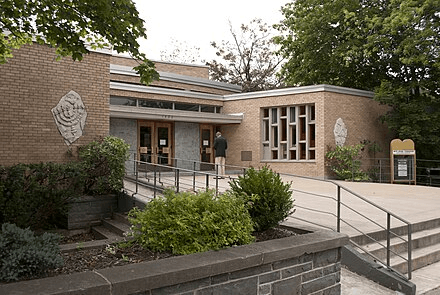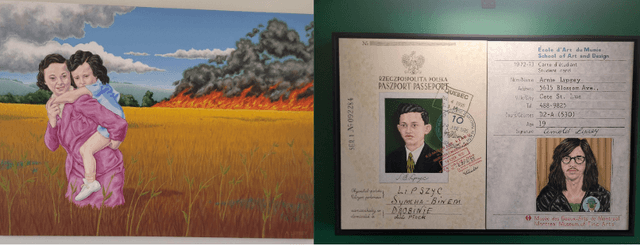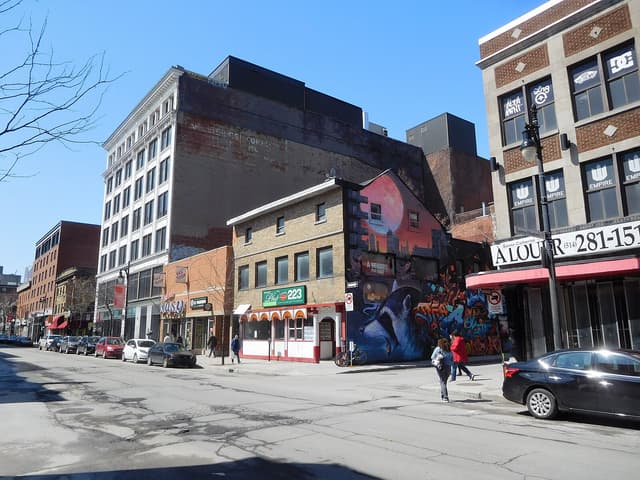On January 27th, the usual hustle and bustle of Montreal was tempered by quiet moments of remembrance. This date, Holocaust Remembrance Day, marks the 80th anniversary of the liberation of Auschwitz, a testament to both the horrors inflicted on the Jews of Europe and their unshakeable resilience. The city, home to about 4,000 Holocaust survivors and the world’s third-largest Holocaust survivor population, mourned, commemorated, and reflected on the brutal genocide.
Thousands of Montrealers engaged in observing remembrance and reflection, with many attending art exhibitions, museum exhibits, and lectures. Sarah Fogg, the Head of Marketing, Communications, and PR at the Montreal Holocaust Museum, commended the city’s participation in commemoration this year.
“The Montreal community showed out in a huge way [for the museum’s recent The Heart From Auschwitz event],” Fogg said in an interview with Nu. “It was really quite heartening to see that 80 years after the end of the Holocaust, there’s still remarkable interest in its history and its legacy.”
Because the systematic murder of six million people is so impossible to grasp it becomes almost abstract, Holocaust Remembrance Day has long emphasized telling the stories of individuals. “Naming names, telling that the person had a background and a family” is vital to making the pain of the Holocaust comprehensible, said professor and historian Joanna Sliwa at her 2025 International Holocaust Remembrance Day Commemorative Lecture at McGill—we must remember “how they coped, how they struggled, and how they died.”
Sliwa’s lecture, which detailed the story of Janina Mehlberg, a Polish Jewish woman who assumed a false identity during the Holocaust to save Jewish lives, exemplified the humanizing nature of commemorative storytelling. In fighting to remember every name, face, and story, we restore the humanity of victims and survivors. We defeat the very doctrine the Nazis thought would reduce us to numbers.
Along with the devastating pain that still lingers with us so many decades later, our memory of the Holocaust reminds us that Jewish life still endures and flourishes. The vibrant Jewish culture that’s so central to Montreal, much of which was sown by Holocaust survivors, perfectly illustrates the strength of the Jewish spirit.
Fogg highlighted the “forward-sighted” attitude of Montreal’s survivors in the years following the Holocaust. She emphasized the story of George Reinitz, a survivor who settled in Montreal and became a Canadian national champion wrestler and an important speaker at the Montreal Holocaust Museum, speaking at one of its Holocaust Remembrance Day events this year. One of the wrestling centres he founded sits right down the street from the Museum, illustrating the complicated interplay between devastation and renewal that Reinitz and other survivors experienced. While “using their experiences to fight rising antisemitism,” these survivors didn’t allow themselves to be “defined by the things they experienced,” Fogg said.
In a conversation with Nu, Professor Urszula Madej-Krupitski, Director of Undergraduate Studies at McGill’s Jewish Studies Department and organizer of the 2025 Commemorative Lecture, said that the strength and perseverance of survivors can be encapsulated in a single phrase.
“One of the first responses, already in the [displaced persons] DP camps, [from] the survivors that just came out of extermination camps or death marches, was this Yiddish saying: ‘Mir zaynen do.’ We’re still here,”.
This Holocaust Remembrance Day, we remained aghast at the incredible scale of death imposed on the Jewish people. We grappled with this catastrophe with profound grief and care, stressing the individuality of its victims. In just as much astonishment, we were awestruck by our resilience. By our refusal to let go of our identities. By our determination to exist, succeed, and flourish.
Powered by Froala Editor






